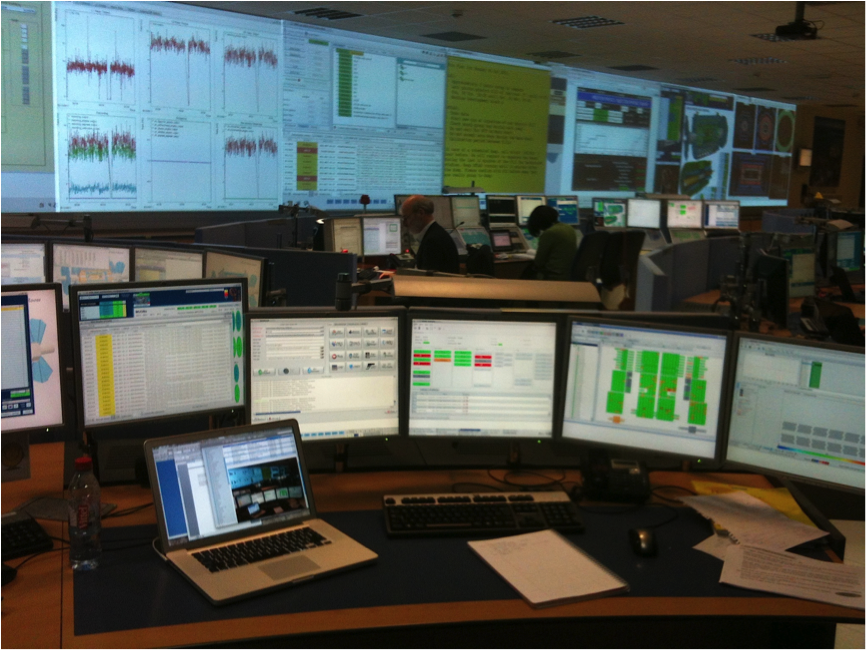The longest shift
1 November 2011 | By

The clock just turned 2:00 a.m., again, on LHC Page One – the machine’s online status viewer – and I’m pondering just how I ended up on the longest shift of the year. I normally love this evening, snuggling under a warm comforter for that extra hour of late-autumn sleep. But, this year, on the very hour we ‘fall back’, I am cuddling with the controls of ATLAS’ 46 meter long muon spectrometer, a bar of chocolate and an extra cup of coffee. So be it.
To be perfectly honest, I don’t mind a bit. I’m playing my small role in the history of one of the greatest scientific accomplishments of mankind. If I do my job well and keep the muon subsystem running properly, it could very well measure the four muons coming from a ‘golden decay’ of the Higgs Boson. Or maybe it’ll measure the two muons coming from the decay of a new force carrier particle, or perhaps a whole plethora of muons coming from the decay of an extra-dimensional microscopic black hole, or maybe something I cannot even imagine. Yes, that would be the most fun, wouldn’t it?
Of course, the reality is that I’m never really going to see exactly which events were recorded during my shift, and neither would the existence of those events, on their own, be sufficient for such important discoveries. That requires the accumulation and analysis of the data, as well as its statistical combination with the trillions of other events taken while I was either home in bed or at work in my office across the street. But that can’t stop me from dreaming as I check the high voltage and the data quality plots.
No, reality might not disturb my dreams, but the sound of a toilet flushing nearly always does. And yes, I am still speaking about shift. That’s just one of the sounds our run coordination installed in the control room to keep us aware of the conditions of the LHC. We hear an occasional doorbell or red-alert alarm, as well. Nothing to worry about, just beam knocking on the door.
The pleasant music is only secondary to the visual stimulation we enjoy behind the desks though. I can’t look anywhere without seeing a screen of some kind. There are 11 screens attached to my desk, each with four virtual desktops, and eight large projections on the wall in front of all of us, lest we miss some key alarm or piece of information. Did I mention my laptop? The truth is, that gets most of my attention. As complex as the device is, ATLAS is working like a charm these days. Not bad for a 100 million channel instrument built by 3000 people.
Yes, there is something special about these late night shifts. I’m in the control room with seven or eight of my colleagues from 11:00 p.m. to 7:00 a.m. (however long it takes) and, somehow, even though some of us might never exchange a word, working through the night develops a certain kind of camaraderie. Sometimes it is more evident, like when our shift leader brought out his banjo to play at 4:30 a.m. or when I wore my foam cheese head to celebrate the Super Bowl victory of my favourite American football team. Other times, it’s just a simple nod at the coffee machine. We do all know somehow that we are privileged to be here, especially at this moment of time, when significant scientific discoveries might just be a few muons away.



